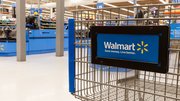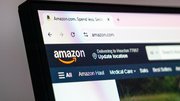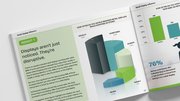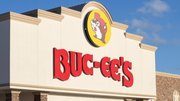Article
LUCY may make health matter for Kroger customers
Retail food chain Kroger is deploying a self-service healthcare and nutritional information program for its shoppers.

April 6, 2010
Kroger is pilot-testing a two-pronged health-and-wellness program that includes a kiosk that lets shoppers determine physical attributes, such as body mass index, and offers nutritional advice.
The retail food chain has named its LC600 Health Station kiosk "LUCY." It is part of Kroger’s new "Health Matters at Kroger" initiative, aimed at helping shoppers make healthy food purchases and track personal health information.
Using LUCY and an online account created at the retailer’s site, shoppers can determine weight, blood pressure, blood oxygen and other health statistics, as well as track how those stats change over time.
The Health Matters at Kroger effort also incorporates a pilot of the NuVal nutrition rating system. Deployed earlier this month at 23 locations in central Kentucky, NuVal features shelf tags that provide scores from 1 (for the least healthy foods) to 100 (for the healthiest foods) on the grocer's shelves.
“Many of our customers have told us they want to make healthier choices for their families, and we have listened,” said Kroger spokesman Tim McGurk in an article published by The (Lexington, Ky.) Herald-Leader.
The Herald-Leader reports that Kroger has not set a firm time period for the pilot, but McGurk says the chain is already gauging shopper interest and participation via its online service.
Consumer adoption
How likely are consumers to embrace the new service? That depends on how Kroger deploys and promotes it, says Sandy Nix, a kiosk industry veteran.
“Use of kiosks in healthcare is a win-win for patients and healthcare providers, but only when used appropriately,” Nix said.
While patient check-in kiosks can speed up the registration process and offer more patient privacy, they won't replace the medical professional or hospital receptionist all together, Nix says.
“Some patients have questions or need the personal attention a person can provide. And while the ideal deployment is a mix of kiosks for routine tasks, such as simple check-in or co-pay collection, they work alongside a helpful staff member who can provide special assistance when needed,” she said.
That said, placing a healthcare-oriented kiosk outside a typical healthcare environment can be tricky, Nix says, since users expect privacy and confidentiality.
“Success (for Kroger) will depend on a thoughtful and well-planned implementation strategy that addresses people's natural concerns over privacy and personal attention,” she said.
Nix says successful health kiosk programs will be ones that provide convenience and value.
One reason Kroger may find success is that it’s no stranger to using new customer-service technology. The company is expanding its relationship with Coinstar to this year place more redbox DVD-rental kiosks throughout the United States — growing its kiosk program from 200 stores to 2,600 stores. Kroger also offers Coinstar’s coin-counting kiosks.
If Kroger’s customer base warms to LUCY in the same way it warmed to redbox, the healthcare program could be a win.
“Taking some aspect of healthcare outside hospitals and clinics and into convenience areas such as grocery stores may be just what the doctor ordered,” Nix said.
 ChatGPT
ChatGPT Grok
Grok Perplexity
Perplexity Claude
Claude




